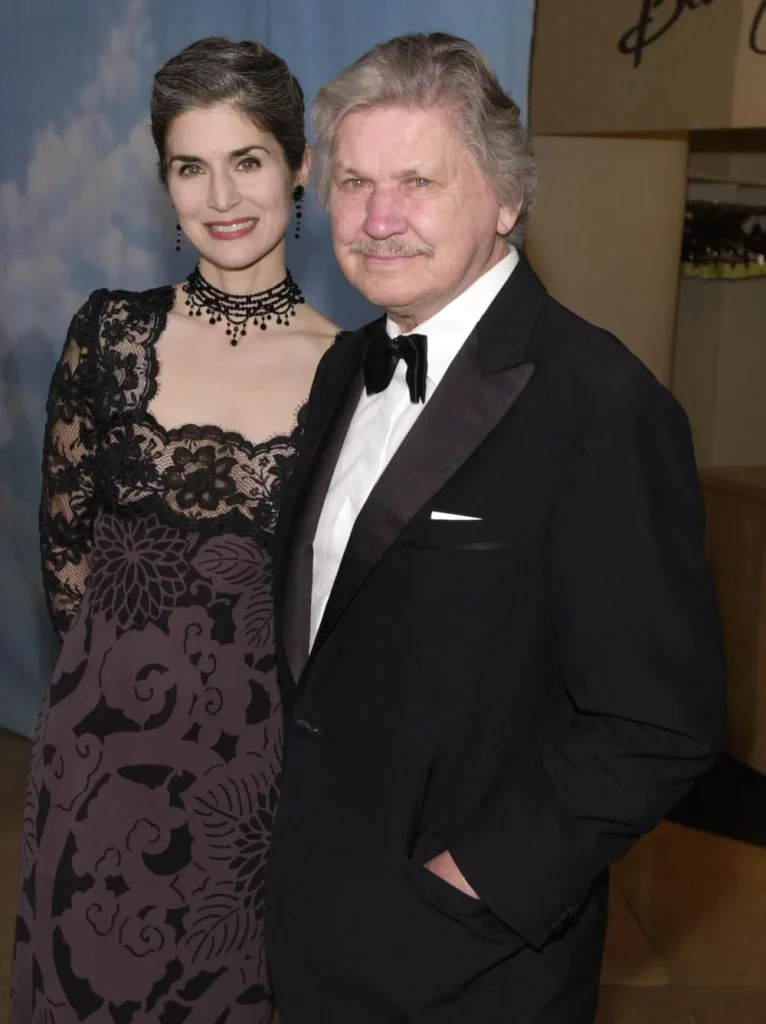Hollywood stars are often surrounded by glamor, giving the impression that every celebrity is a born star.
However, this is undoubtedly not always the case, and Charles Bronson, a great Hollywood actor, was not one of them.Charles Dennis Buchinsky, Bronson’s birth name, had a terrible life overall and a particularly difficult childhood growing up in a coal mining community in Croyle Township, about 60 miles from Pittsburgh.

He grew up with another 14 siblings, ranking ninth out of a total of 15. Even though the cost of raising a single child is well known, consider the strain on a family who is extremely low income. For Bronson, this was precisely the situation.
The modest, company-built cabin where Bronson and the large family resided was only a few yards from the coal car tracks. They had to alternate taking turns sleeping because the house was too small to accommodate such a large family.
“There was no love in my house,” he said. “The only physical contact I had with my mother was when she took me between her knees to pull the lice out of my hair.”
The town as a whole was a fairly dreary and forlorn place, serving solely business officials who sought to facilitate the coal mining and maximize profits. However, it wasn’t just the Bronson family who had it rough.

There wasn’t much natural beauty, the water quality wasn’t great, and the future looked bleak. The fact that Bronson has portrayed his childhood as being lonely and unpleasant is not surprising.
Around the time Bronson was a teenager and his father passed away, things became more and more challenging. He was accustomed to bartering for pennies, but he suddenly had to drop out of school to help his family. Getting a job as a coal miner is the only logical conclusion to be drawn from this.
Even as an adult, Bronson was plagued by the memories of this time in his life. He would never forget the arduous labor or the overpowering coal odor that filled his nostrils. Bronson had the impression that he was inhaling black dust while living on his hands and knees.
He frequently remembered the numerous headaches and how hard and filthy his hands were when working as a miner. According to Bronson, he was born with a shovel in his mouth rather than a spoon.

Above the bodily effects, however, was a psychological effect that was much more severe: his time spent working as a coal miner left him with a severe inferiority complex.
“During my years as a miner, I was just a kid, but I was convinced that I was the lowliest of all forms of man,” he said.
In reality, according to Bronson, all of the coal miners in his area shared the same complex; they believed that steelworkers and railroad workers were the ‘elite’ and that they were the lowest class of human beings.
“Very few people know what it is like to live down there underneath the surface of the world, in that total blackness.”
He was overjoyed when he was eventually enlisted into the army. Finally, he could leave behind his gloomy surroundings and count on being fed and clothed. This time in his life would finally pave the way for Bronson to establish himself as one of Hollywood’s most recognizable figures.
Bronson returned to the United States after serving in World War II, started studying art, and then enrolled at the Pasadena Playhouse in California.
His skills and talents were almost immediately clear: one teacher noticed them early on and soon referred the young Bronson to director Henry Hathaway. This eventually resulted in him being cast in his very first film: the 1951 You’re in the Navy Now.

While he frequently went unnoticed for his early work, by 1954 his work in Vera Cruz and, four years later, as the lead in Machine-Gun Kelly, had won him praise from reviewers.
Early on, Bronson worked as a painter, cook, mason, and onion-picker in addition to his acting gigs. In the 1950s, he also legally changed his name from Buchinsky to Bronson out of concern that his Russian-sounding name wouldn’t be well-received during the time when communism was strongly opposed.
But it wasn’t until 1974 that he got his big break, as Paul Kersey in Death Wish, a vigilante architect whose wife and daughter are attacked. Due to the film’s success, multiple sequels were made throughout the ensuing decades.
Following his performance as the renowned drifter James Coburn in Hard Times, Bronson continued to rise to fame.
It took him some time to get used to being a celebrity, and Bronson is reported to have been tormented by his gloomy upbringing.
He specifically avoided those who were invasive or made him feel threatened, according to co-star Andrew Stevens. On the other side, Bronson was known to be open, endearing, and humorous when he was relaxed and at ease
With his first wife, Harriet Tendler, whom he was married to from 1949 to 1965, Bronson had two children.
Popular British actress Jill Ireland, who appeared with Bronson in a total of 15 movies, including The Valachi Papers and Love and Bullets, was his second marriage.Ireland unfortunately lost her battle with cancer in 1990, leaving behind two children.

With Kim Weeks, a previous worker of an audiobook company who had assisted in the recording of Ireland’s audiobooks, Bronson married for the third time in December 1998.
Later in life, Bronson was diagnosed with Alzheimer’s. His battle with the illness was described as a “stark contrast to the high-octane vitality of his incredible life.”
The celebrity was occasionally seen staggering and confused about Beverly Hills. Fortunately, actor Weeks’s wife Weeks was there to take care of him.
“The family has known for almost a year that something was wrong because Charles just hasn’t been himself,” his sister, Catherine Pidgeon, said.
